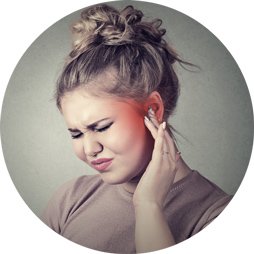Do you have an ear infection?
Have you been feeling off balance lately? Maybe you’ve had swollen, red ears, and perhaps a fever as well?
You could be suffering from an ear infection. It can be a common hearing problem and will usually clear up on its own.
This guide will help you catch an infection early, so you’ll be able to get your hearing back to normal as quickly as possible, and also get back to doing the things you love.






